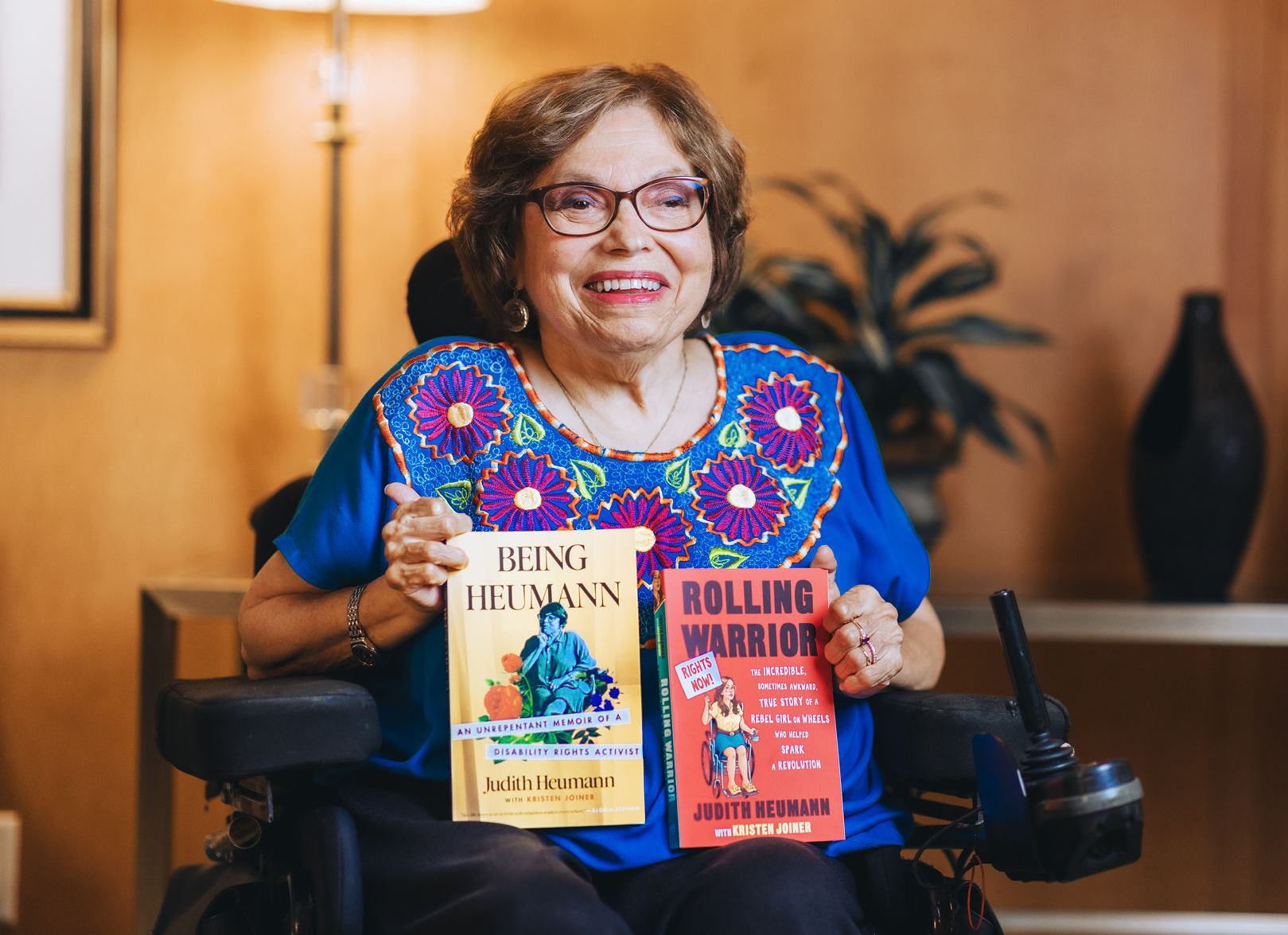Tribute to disability rights pioneer Judy Heumann

Posted in News
GUCCHD Pays Tribute to Judy Heumann
The Georgetown University Center for Child and Human Development (GUCCHD) joins the disability community in mourning the loss of Judith “Judy” Heumann, who passed away on March 4, 2023 in the District of Columbia. Known as the “Mother of the Disability Rights Movement,” Judy changed the course of history in this country, not only for persons with disabilities and their families but for everyone.
Judy was an activist and an influential leader throughout her life. Judy contracted polio when she was a toddler and as an outcome needed to use a wheelchair. Initially, she was denied the opportunity to attend school because of her disability, but thanks to her parents’ advocacy, she started receiving an education when she was in the fourth grade. During her childhood, she attended Camp Jened, a camp for children with disabilities. In Crip Camp, a 2021 Oscar nominated documentary, highlights how this experience and the relationships Judy formed there influenced and contributed to her activism. When Judy was 23 years-old and denied her teaching license attributed to being a “fire hazard,” she sued the state of New York and won on the basis of civil rights. Judy became the first teacher in New York State who used a wheelchair.
Perhaps most famously, in 1977, Judy led a sit-in. The sit-in was a protest about the long-delayed regulations to implement Section 504 of the Rehabilitation Act of 1973, the first federal civil rights protection for people with disabilities. For almost a month, nearly 200 people with disabilities occupied the regional headquarters in San Francisco of the federal agency responsible for issuing regulations that would guide the implementation of Section 504. The sit-in was one of the longest occupations of a federal building in United States history. It inspired grassroots protests by people with disabilities and their allies from a broad spectrum of backgrounds across the country. This sit in directly led to the issuance of regulations embodying the concepts of inclusion of people with disabilities and protection from discrimination. Judy’s central role in the disability rights movement and in establishing 504 principles laid the groundwork for the Americans with Disabilities Act (ADA). Judy also assumed a major role in developing legislation that led to the Individuals with Disabilities Education Act (IDEA) and the UN Convention on the Rights of Persons with Disabilities (CRPD).
Locally, in the District of Columbia, Judy was the first director of the DC Department on Disability Services. Judy not only fought for inclusion and against discrimination in this country, she also brought together the disability community nationally and internationally.
“Judy Heumann was an inspiration, my colleague, and my friend. She gave light where there was darkness, she gave wisdom where there was indifference, and she gave hope to all of us who fight for equity and inclusion. Judy was a tireless advocate, a joyful presence, and one of the most elegant women I have known. The world is a lesser place without her,” said Phyllis Magrab, Director of the GUCCHD.
“We looked beyond how we each spoke and moved, how we thought and how we looked. We respected the humanity in each other. We stood for inclusiveness and community, for our love of equity and justice––and we won,” said Judy in her memoir, Being Heumann (p. 202).
Judy fought tirelessly for the self-determination of all people––the right to direct one’s own life. As one of the founders of the independent living movement, Judy advocated for people with disabilities to be fully included and welcomed in all aspects of community life. Judy challenged people without disabilities to recognize and value the gifts that people who experience disabilities bring to their communities.
Learn more about Judy by watching the documentary, Crip Camp, reading her memoir, Being Heumann, listening to her podcast, The Heumann Perspective, or visiting her website.
The GUCCHD offers its sympathy to Judy’s husband, Jorge Pineda, her family, and all who knew and loved Judy.
